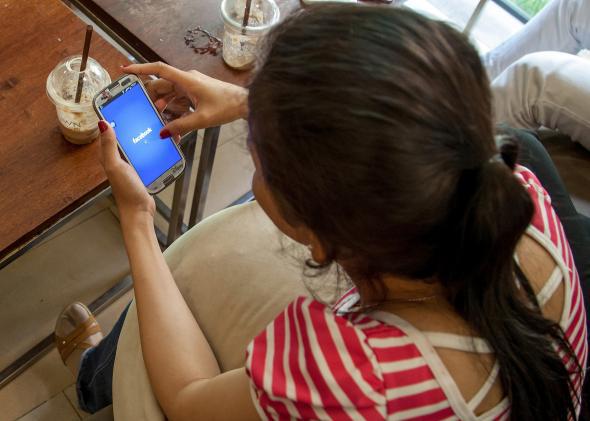If you agree to let your boss track your fitness data, it’s legal for her to check how active you’ve been whenever she wants. Maybe your tracker even uses geofencing to tell her how many times you’ve been to the gym. If you signed on for it, it’s allowed. But when stalkers or someone who is abusive uses spyware to track victims, that’s illegal, and the Justice Department wants it to stop.
Working with the Eastern District of Virginia and the FBI, the Justice Department indicted 31-year-old Hammad Akbar on Monday for allegedly selling spyware. Akbar is the CEO of InvoCode Pvt Ltd., the company that markets and sells an app called StealthGenie. The case against Akbar is the first to directly address spyware sales. Akbar is Pakistani, but StealthGenie was hosted (before the Justice Department disabled the hosting) at a data center in Ashburn, Virginia.
A stalker only needs a few minutes with a victim’s phone to plant StealthGenie. The app is easy to install and then runs almost undetectably. It monitors calls and file transfers; key logs to see what the victim is texting, putting in a calendar, or writing in notes and emails; and also tracks the smartphone’s position.
Assistant Attorney General Leslie Caldwell said in a Department of Justice statement that:
Selling spyware is not just reprehensible, it’s a crime. Apps like StealthGenie are expressly designed for use by stalkers and domestic abusers who want to know every detail of a victim’s personal life—all without the victim’s knowledge. The Criminal Division is committed to cracking down on those who seek to profit from technology designed and used to commit brazen invasions of individual privacy.
As part of an investigation about the role of smartphones in stalking and domestic abuse, NPR published a survey of 72 domestic violence shelters around the country. Eighty-five percent reported working with victims who had been digitally tracked by their abuser. Seventy-five percent encountered victims who reported being surveiled by their abusers, and 54 percent advised “survivors” to turn off their smartphones’ GPS functions.
NPR points out that many spyware services pretend to be for monitoring employees or children—to make it seem like they’re on the up and up—but they are still used for stalking. StealthGenie apparently didn’t bother with a cover story: The Justice Department says that the business plan for marketing and selling StealthGenie specifically described an app for “[s]pousal cheat: Husband/Wife of (sic) boyfriend/girlfriend suspecting their other half of cheating or any other suspicious behaviour or if they just want to monitor them.”
At $100 to $200 per year depending on which premium features a subscriber wants, StealthGenie is as easy and cheap to get as Netflix, but the drama is way too real.
